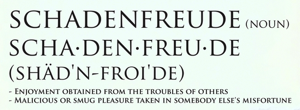[In which — armed only with our wits and a sizable State check — we make our annual pilgrimage to The Shire Bookshop to see if Your Beleaguered Instructor walks the walk when it comes to buying rehabilitation, socialization, and positive-recreational material for the incarcerated in his charge….]
I visited the Shire on Friday, having got the OK from my boss to work there the day following Thanksgiving. I got a good start on the approved $1,500 purchase. As a nod to Black Friday, the Shire has everything marked down by 30%. A 30 percent discount stretches this money to a very respectable $1,950. And since we’re tax-exempt, we don’t have to worry about the governor stealing any of it.
I set aside 64 books, but that also includes the 15 they let me take a few weeks ago for our Thanksgiving display cases. So I actually was only able to set aside 49 books inside of eight hours’ work. Why only 49? Because I had to work from a 75-title list of inmate requests that my cataloger created over the past several weeks. It takes me the bulk of the day to shlep around the place looking for these books. Drives me nuts.
And since I’ve spent only $750, that means I’m a little more than a third of the way through. I’ll have to solicit more inmate requests. And I need to do this, because prisoners must feel invested in their library, if you expect them to care about the material and services you offer.
I searched through Humor, Foreign Languages, Religion, Words/word play, Poetry, Drama, Music, Writing, Sports, Computers, and the Occult. I also combed thru True Crime, looking for any books on prisons and the experiences of the incarcerated (we have a smallish section on criminology and criminality that I’m trying to expand). And then I chased inmate requests through the various Fiction sections all day long. A lot of horror requests this time.
There’s also a smattering of VHS tapes that I’m buying (mostly travelogues).
I haven’t hit Self-Help/Psychology/Sociology yet, so that’ll help for next time. I want to get in the hardcover & TP biography sections, too. I need to remember to go through Sci-Fi and American history.
Next time, I hope to bring A.D. with me, but I’m not sure when that’ll happen. About a week ago I advised her to ask her Superintendent for some money to spend, but she told me recently that she hasn’t done it yet.
She’s dawdling. You don’t rehabilitate anyone by dawdling.






